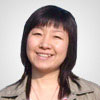ΓΓΓΓPart V Cloze (15 minutes)
ΓΓΓΓDirections: There are 20 blanks in the following passage. For each blank there are four choices marked [A], [B], [C] and [D] on the right side of the paper. You should choose the ONE that best fits into the passage. Then mark the corresponding letter on Answer Sheet 2 with a single line through the center.
ΓΓΓΓMost people would be 67 by the high quality of medicine 68 to most Americans. There is a lot of specialization, a great deal of 69 to the individual, a 70 amount of advanced technical equipment, and 71 effort not to make mistakes because of the financial risk which doctors and hospitals must 72 in the courts if they 73 things badly.
ΓΓΓΓBut the Americans are in a mess. The problem is the way in 74 health care is organized and 75 . 76 to public belief it is not just a free competition system. The private system has been joined a large public system, because private care was simply not 77 the less fortunate and the elderly.
ΓΓΓΓBut even with this huge public part of the system, 78 this year will eat up 84.5 billion dollarsΓΣmore than 10 per cent of the U.S. budgetΓΣlarge numbers of Americans are left 79 . These include about half the 11 million unemployed and those who fail to meet the strict limits 80 income fixed by a government trying to make savings where it can.
ΓΓΓΓThe basic problem, however, is that there is no central control 81 the health system. There is no 82 to what doctors and hospitals charge for their services, other than what the public is able to pay. The number of doctors has shot up and prices have climbed. When faced with toothache, a sick child, or a heart attack, all the unfortunate person concerned can do is 83 up.
ΓΓΓΓTwo-thirds of the population 84 covered by medical insurance. Doctors charge as much as they want 85 that the insurance company will pay the bill.
ΓΓΓΓThe rising cost of medicine in the U.S. is among the most worrying problems facing the country. In 1981 the country's health bill climbed 15.9 per centΓΣabout twice as fast as prices 86 general.
ΓΓΓΓ67. A compressed B impressed C obsessed D repressed
ΓΓΓΓ68. A available B attainable C achievable D amenable
ΓΓΓΓ69. A extension B retention C attention D exertion
ΓΓΓΓ70. A countless B titanic C broad D vast
ΓΓΓΓ71. A intensive B absorbed C intense D concentrated
ΓΓΓΓ72. A run into B come into C face D defy
ΓΓΓΓ73. A treat B deal C maneuver D handle
ΓΓΓΓ74. A which B that C what D when
ΓΓΓΓ75. A to finance B financed C the finance D to be financed
ΓΓΓΓ76. A Contrary B Opposed C Averse D Objected
ΓΓΓΓ77. A looking for B looking into C looking after D looking over
ΓΓΓΓ78. A which B what C that D it
ΓΓΓΓ79. A over B out C off D away
ΓΓΓΓ80. A for B in C with D on
ΓΓΓΓ81. A over B on C under D behind
ΓΓΓΓ82. A boundary B restriction C confinement D limit
ΓΓΓΓ83. A to pay B paying C to be paid D to have paid
ΓΓΓΓ84. A is being B are C have been D is
ΓΓΓΓ85. A knowing B to know C they know D known
ΓΓΓΓ86. A in B with C on D for
ΓΓΓΓPart VI Translation (5 minutes)
ΓΓΓΓDirections: Complete the following sentences on Answer Sheet 2 by translating into English the Chinese given in brackets.
ΓΓΓΓ87. Regardless of all the difficulties, ________________________(Έ“²Éïΰ(hu®§)±MΝΠ†é»ΓΈ“²ÉΒΡôύ(qu®Δn)άϊ).
ΓΓΓΓ88. The order from the commander was that the troops ________________________(ΝΔΦ¥ι_ΑΈ»Ξ«ΑΨÄ).
ΓΓΓΓ89. Science to the human mind is ________________________(’ΐ»γΥ°ΜρΩ’öβ÷°”Ύ…μσw).
ΓΓΓΓ90. For the past two years, ________________________(Έ““Μ÷±ΟΠ÷χ€ (zh®≥n)²δΩΦ‘΅).
ΓΓΓΓ91. Of all the people I know, ________________________(¦]”–»Υ±»ΗώΝ÷œ»…ζΗϋ÷ΒΒΟΈ“ΉπΨ¥).














